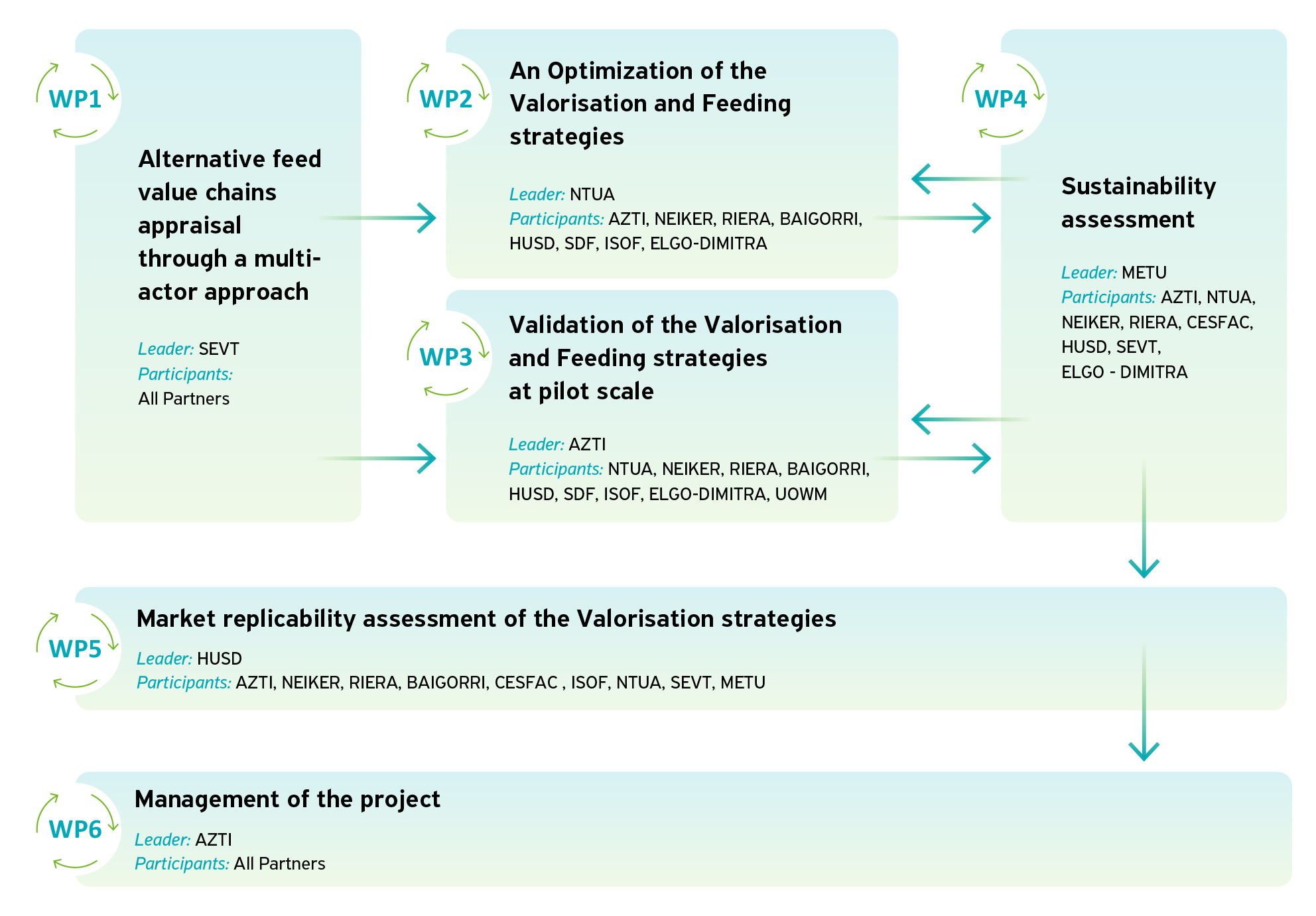The Strategy
Demonstrating technical & economic viability
Project strategy focus on testing and demonstrating the technical and economic viability of alternative feed resources from winery, orange juice and olive oil food industry by-products in the South and East of the Mediterranean Area: Spain, Greece and Egypt.
The multi-actor approach has been considered of utmost importance to ensure that all stakeholders will contribute to build sustainable livestock production systems to further add value to EU Mediterranean animal origin foods.
An optimization of the valorisation and feeding strategies before the demonstration trial will adjust the process parameters and define the best feeding strategy based on the nutritional and digestibility value of alternative feeds. Solid fermentation, enzymatic hydrolysis and drying will be incorporated into the valorisation schemes targeting at increasing protein content, digestibility, security, shelf life and feed safety, respectively. Then, the impact of using alternative feeds on productivity and quality of the final product will be tested and demonstrated through product validation in an operational environment and in a multi-actor approach - all the value chain. Targeted by-products and obtained feed ingredients will be characterized for their Nutritional value, Digestibility value, Ruminal fermentation kinetics and Methane production.
The Feed Efficiency for ruminants and broiler chickens will be assessed by various indicators as well as the Sensory Evaluation of the final products. The sustainability of proposed value chains from the environmental (LCA), economic (LCC) and social point of view will be assessed by comparing the current situation with the proposed solutions. The use of new feeds by the farmers will be promoted by a market replicability assessment of the valorisation strategies in the whole Mediterranean Area.
This strategy will be in line with the development of national and/or regional strategies and policies and will include the regulatory analysis, the development of the business models and plans, as well as the definition of the road map for implementing them at real scale.
Finally, the Management of the project has been considered to facilitate the necessary control and participation mechanisms of each partner and to help partners meet the objectives.
Project Methodology

Specific Objectives
Optimize and scale-up
Optimize and scale-up three new feed ingredients from winery, orange juice, and olive oil industry by-products. The processing will include solid fermentation and enzymatic hydrolysis to improve their nutritional value and digestibility and enhanced drying process to stabilize them and foster their feed safety, security, and shelf-life.
Test and validate
Test and validate the entire value chain for three case studies with a multi-actor approach strategy (by-product generation, collection, processing-stabilizing, feed formulation, animal husbandry, consumer acceptability, sustainability and regulatory aspects), which will help the adoption of new feed sources by livestock systems.
Validate intermediate ingredients
Validate three intermediate ingredients and the final diets with animal feeding trials (TRL6-7).
Assess sustainability
Assess the sustainability of the new value chains from the environmental, economic and social point of view.
Market replicability
Define the market replicability of each value chain in the Mediterranean area.
Communicate & disseminate
Communicate and disseminate the project results and developments to the relevant stakeholders.


